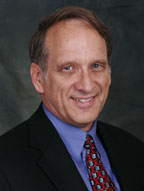Careful Observations
 What follows below flows from my own observations over the years; observations of some of the dynamics that develop enabling sexual abuse to happen between clergy and congregants. This opinion essay will not be backed with empirical data nor assertions by experts. It is just my own watching and trying to reach some conclusions.
What follows below flows from my own observations over the years; observations of some of the dynamics that develop enabling sexual abuse to happen between clergy and congregants. This opinion essay will not be backed with empirical data nor assertions by experts. It is just my own watching and trying to reach some conclusions.
Illicit relationships that form between male pastors and their female victims are often mislabeled “affairs.” Such language immediately sanitizes the situation. It is easier to talk about affairs than it is adultery or abuse. Adultery sounds so… sinful. Abuse sounds so violent. Thus, pastors in the situation may well find it easier to hide behind the term affair than adultery. But by whatever label the activity is named, it is still wrong. Victims of pastoral sexual abuse are exactly that—victims. They are not generally partners in an affair. That is not to say the relationship is violent or forced, it is to say that the balance of power in the adultery is decidedly in favor of the pastor.
The pastor is frequently known as a good man, who cares, who expresses himself well, who often treats her with dignity and respect, who takes the time to listen and has a heart to understand her. He usually appears emotionally secure. These characteristics are what make the pastor both effective and strong. The victim generally does not have that kind of support structure at home. Which is, of course, one of the reasons she has turned to the pastor for help in the first place. And by definition it is his job to be there for his people.
Thus by virtue of the initially legitimate relationship between pastor and counselee, she is often unintentionally set up for victimization as the relationship continues. That is if the emotionally protective lines get fuzzy and ultimately crossed.
When you add to the above situation a pastor, who is not watching his boundaries, who may be denying the possibility of personal wrong doing, who is not taking care to keep his “home fires” burning, and who is taking his own walk with God for granted, who enjoys the power of his position a little too much, you have the fuel for an explosive situation. An unintendedly sensual glance, a casual almost meaningless touch, a word or phrase with extra meaning attached, may be all the spark that is needed to set off a highly destructive cataclysm.
It becomes as it were an explosion that rocks the church, may wreck two or more marriages, mars characters from multiple families, and several generations. It is a sin that destroys a ministry and maybe a life of usefulness.
In those rare cases where the pastor is said to have been seduced, one must ask a few significant questions. Is the alleged seductress going after any and every male? If so then the pastor should have taken steps to protect himself and his ministry. If not, then why is she after this particular man? Would she be after him if he were not the pastor?
What must be remembered here is that the pastor cannot separate himself from his role try as he might. Upon accepting the call to pastor as a call from heaven itself, the pastor in that moment gives up his rights to speak or act as something else. A pastor is something someone is, not merely something someone does. So, while he may choose to name it an affair between two “consenting” people, a man and a woman, she almost always will recall it later as a relationship with the pastor.
He, on the one hand, will try to differentiate his role from his personhood and call it an affair. In doing so, he can perhaps more easily distance himself from the guilt, from the personal emotional consequences and from her as a person.
She, one the other hand, very likely, will make no such distinction. Her relationship was with the pastor and calling it an affair does not really allow her the space it does him. Once the deed is done, she is a victim, not just of some male opportunist, but of the pastor.
Does this mean she has no responsibility at all for what happens? Theoretically speaking, no. If and when she sees the evil developing, she can and should say no at any point the relationship becomes other than totally professional. But “can” and “should” are loaded words that presuppose a fair level of equality in the relationship. While every case is different, emotional ties meant to enable healing may metastasize to the point of making the courage to say no to inappropriate advances very difficult to muster. Further, if the pastor is claiming the relationship is “God’s will” as sometimes happens, what recourse does she have? To say no is to go against God Himself, apparently.
In the end then, it is ultimately the pastor who is responsible to protect the boundaries, the reputations, and the integrity of his office and of his counselees. It is the pastor who is expected to “Just Say No;” first to the temptation and himself, and then also to the relationship. When situations begin to move in unfortunate directions, he is the one responsible to refer when necessary; to stop the problem before it gets out of hand; and to otherwise keep his role and his study “safe” for the furtherance of the Gospel.
Adultery/abuse never contributes to a successful Gospel oriented mission. Never. Adultery/abuse by whatever name we give it is still sin. Adultery has consequences. As sin, it expects an ultimate accountability. Calling it an affair changes nothing. And we forget that at potentially eternal expense.
Author: Tom Lemon, President, Mid-America Union Conference
